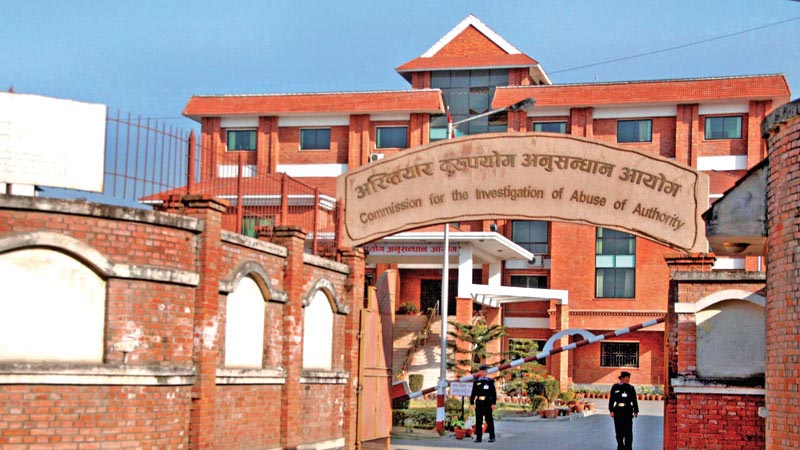CIAA mum over suspicious procurement of medical kits
Kathmandu, March 31
Though several media reports since the last few days have been bringing to light the anomalies in the procurement process of various medical equipment and logistics from China to control the spread of coronavirus, the Commission for the Investigation of Abuse of Authority (CIAA) — the country’s anti-graft body — is mum over the issue.
The government, especially the Ministry of Health and Population (MoHP) has been charged in several media reports of purchasing necessary medical equipment at an exorbitantly higher price by bypassing the comparatively low-cost quotations from the private sector.
Meanwhile, the anti-graft body has said that it is yet to receive any official complaint on this issue to start any investigation.
“We have heard about the suspicious procurement process of medical equipment through the media. However, our investigation on the issue depends on whether or not CIAA receives complaints related to the issue,” said Pradeep Kumar Koirala, spokesperson for CIAA.
The government had received its first batch of medical equipment, including personal protective equipment (PPE) from China on Sunday. A chartered flight of Nepal Airlines Corporation had carried the equipment home.
However, it was revealed that the government had procured medical equipment meant for containing the spread of coronavirus from Omni Group at exorbitantly high prices compared to quotations of different other firms. The government had procured medical kits like protective goggles, infrared thermometers, gloves, N-95 masks, shoe covers, surgical masks and chlorine, among others at higher prices compared to the rate that other firms had quoted.
Among others, the government has purchased shoe covers at Rs 240 per piece against minimum quotation of five rupees a piece. Similarly, the government purchased N-95 masks at Rs 840 per piece against minimum quotation of Rs 165 per piece.
Likewise, the government has purchased protective goggles at Rs 2,160 per piece against the minimum quotation of Rs 360 per piece, while infrared thermometers whose minimum quotation was Rs 1,800 per piece has been procured at Rs 7,800 per piece.
The government’s move to bypass minimum quotation and purchase medical kits at such a high rate from Omni Group had raised many eyebrows and made the entire procurement process suspicious.
Meanwhile, officials at the MoHP have been denying any anomalies in the procurement process. Mahendra Prasad Shrestha, director general at the Department of Health Service, said that medical kits did cost high due to the shortage in the international market.
However, Chemical and Medical Suppliers Association of Nepal has already issued a statement on Monday stating the procurement process of medical kits did not follow competitive tender process.
Meanwhile, Prime Minister KP Sharma Oli on Monday had expressed his concern over the suspicious procurement process of medical kits.






